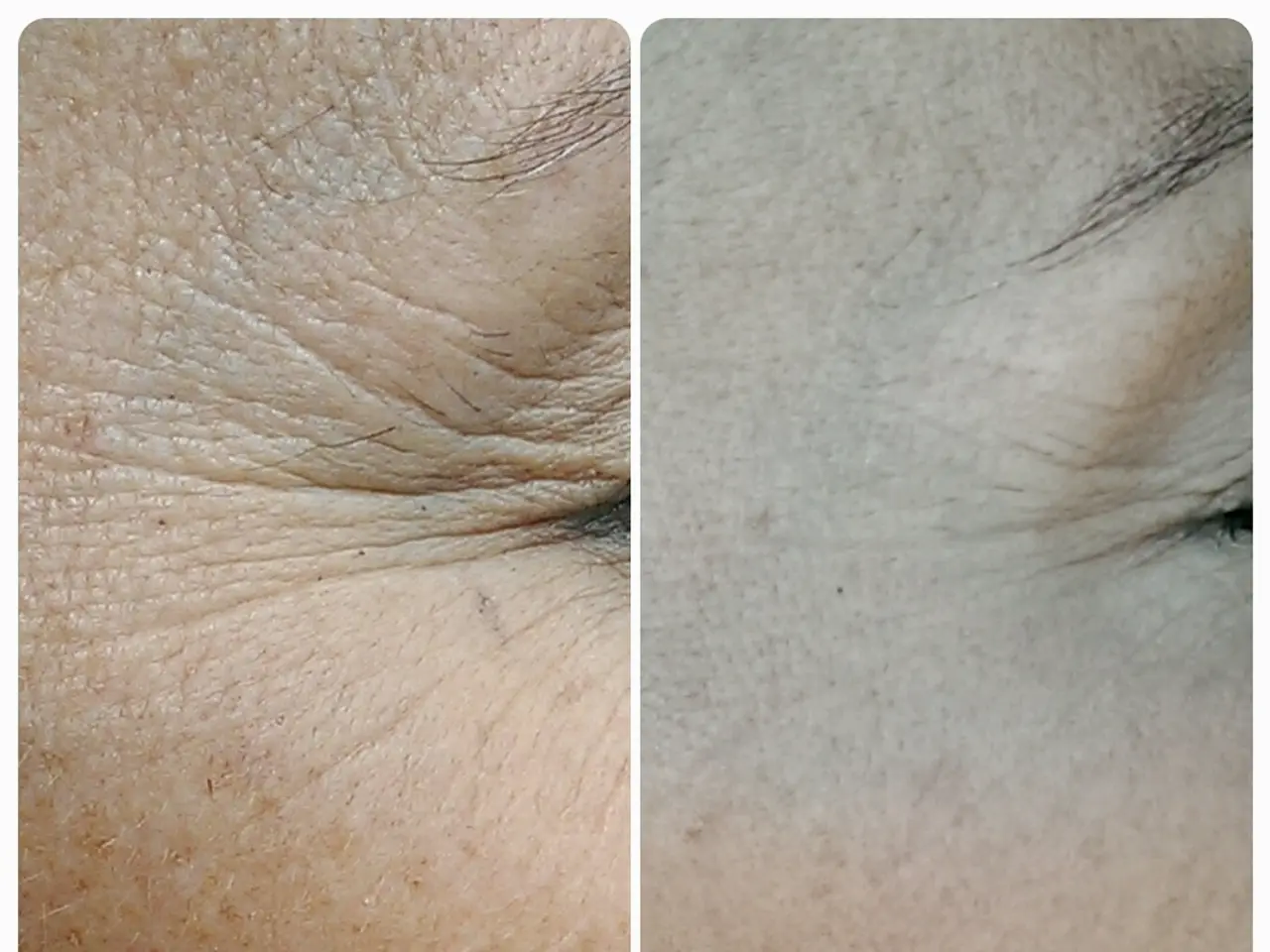Understanding the Relationship Between Psoriasis and Social Anxiety
Psoriasis, a skin condition that causes areas of skin to become flushed, inflamed, and flaky, can have far-reaching effects beyond the physical symptoms. Evidence suggests a clear link between psoriasis and social anxiety, with individuals frequently experiencing increased anxiety, depression, and social distress [1][2][5].
The National Psoriasis Foundation recommends that individuals manage stress as part of their overall treatment plan, as stress may play a key role in psoriasis, possibly affecting the onset of the condition and when it flares [3]. Stress or anxiety can trigger or worsen psoriasis symptoms, and there is a cyclical relationship between anxiety and psoriasis [4].
The appearance of psoriatic lesions can lead to a person feeling anxious, depressed, or embarrassed. In a 2017 study, researchers found that people who developed psoriasis after the age of 18 years developed social anxiety related to feelings of their appearance, affecting their self-worth [6]. Conversely, those who developed psoriasis before the age of 18 experienced social anxiety related to feelings of stigmatization [7].
Social anxiety is a type of anxiety disorder that can cause a person to fear that others will judge them, avoid other people, feel "sick to their stomach", feel embarrassed or self-conscious in front of others, experience physical symptoms, avoid eye contact or speak in a soft voice, and find interactions with others frightening [8]. Anxiety may lead to physical reactions such as a racing heart, feeling weak in the legs, or a dry mouth, nervousness or panic, avoiding social situations, negative thoughts about oneself or others, and symptoms of depression due to social isolation [8].
Effective management of social anxiety in psoriasis involves both addressing skin symptoms and mental health. Treatments include dermatological therapies (topical treatments, phototherapy, systemic medications) to control psoriatic flares, alongside psychological or psychiatric interventions such as cognitive-behavioral therapy (CBT), psychotherapy, and sometimes medication to reduce anxiety and depression [1][2]. Psychotherapy has been shown to significantly reduce anxiety and depression symptoms in psoriasis patients, highlighting the importance of an integrated approach [2].
The American Psychological Association (APA) describes a fine line between stress and anxiety [9]. Anxiety, caused by persistent and excessive worries, can be a result of having psoriasis due to it being a constant stressor. In this regard, it is crucial for a person with psoriasis to work with a healthcare professional to develop effective mental health treatments.
The National Psoriasis Foundation offers a service called One to One, connecting people with psoriasis to mentors who can help them learn to cope with the condition [10]. Additionally, the Psoriasis and Psoriatic Arthritis Alliance provide strategies to help manage general anxiety and social anxiety, including practicing breathing exercises, recognizing and changing negative thoughts, learning to handle social situations, joining a support group, and getting plenty of rest [11].
In summary, psoriasis is linked with social anxiety through both visible symptoms and inflammatory mechanisms, and effective management requires combined dermatological and psychological care [1][2][5]. By addressing both the physical and mental aspects of the condition, individuals with psoriasis can improve their quality of life and social functioning.
- Psoriasis, an inflammatory skin condition, can lead to anxiety, depression, and social distress, as suggested by numerous studies [1][2][5].
- The National Psoriasis Foundation recommends that individuals manage stress as part of their treatment plan, acknowledging the potential role of stress in psoriasis onset and flares [3].
- Social anxiety, a type of anxiety disorder, can be a response to feelings of judgement, self-consciousness, or stigmatization due to psoriasis symptoms [6][7][8].
- Effective management of social anxiety in psoriasis involves a combination of dermatological therapies and mental health interventions, such as cognitive-behavioral therapy (CBT) and psychotherapy [1][2].
- The American Psychological Association points out that anxiety can be a constant stressor for those with psoriasis, emphasizing the importance of mental health treatments in managing the condition [9].
- The National Psoriasis Foundation provides a mentoring service, One to One, to help individuals learn to cope with the condition and improve their social mental health [10].




